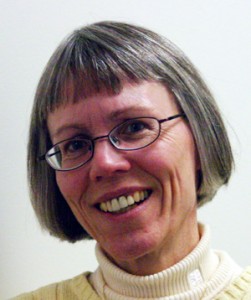By Barb Arland-Fye
One day, while teaching undergraduate students about moral theology, Father Bud Grant observed: “Forgiveness is the greatest gift the Church has given to the world.”

The theologian hadn’t anticipated how his students at St. Ambrose University in Davenport might react to that statement. The room went silent. “It was one of those beautiful, grace-filled moments. Our students recognize the need for forgiveness despite being raised since infants to believe they’re perfect!”Fr. Bud shared this story last weekend with students in the Master of Pastoral Theology class, which includes deacon candidates for the Diocese of Davenport, their spouses, several deacons, a deacon’s wife, a St. Ambrose instructor and me.
Among other things, we explored the concept of love as it relates to forgiveness. Fr. Bud says Christ’s manifestation of love is incarnate forgiveness; something to reflect on when I look at the crucifix hanging on the wall in my office, or above the fireplace in my family room.
The priest asked us to think about who we have the hardest time forgiving. Anyone who violates another person’s dignity or innocence, dictators and other oppressors came to my mind. But the correct answer focuses on relationships. Among the hardest people to forgive are the people closest to us who have hurt us, Fr. Bud said. His comment stuck with me during a presentation on hospice that Chaplain Jeanne Olsen of Genesis Health System in Davenport gave later that day.
She was sharing stories about dying people who cling to life waiting for one last thing: a child’s graduation, a sister’s wedding, a spouse’s birthday, an anniversary, an opportunity to reconcile with an estranged family member. Olsen described the heartache of a dying man who waited for his father to appear at his bedside to end their estrangement. It didn’t happen, and the younger man died without that last act of love being fulfilled. My prayer is that God’s loving embrace healed each man’s pain.
But who else is it hard to forgive? Fr. Bud asked. What about God? Don’t we have the most trouble forgiving God? The years fell like dominoes as I recalled times I thought God owed me an apology. This God I confide in every day, the God who knows me better than myself and intuits every joy, hope, fear and anxiety.
It’s not as if God is a puppet master pulling the puppet’s strings, however. Jesus didn’t know planes were going to deliberately crash into the World Trade Center. But our lives have changed as a result of what happened, Fr. Bud observed. The U.S. sought retaliation against the terrorists; more death and destruction were the consequences. The priest quoted American theologian James Gustafson, reflecting on the lessons we learn from Scripture that have moral impact. One of them is accepting and giving forgiveness. How different would the world be today if we had not responded in vengeance to the tragedy of 9-11?
Fr. Bud shared a story about a letter he wrote to the Ayatollah of Iran in response to an American naval warship shooting down an Iranian passenger jet it mistook for an F-14 fighter in 1988. In his letter, the priest apologized for the tragedy. The response from Iran gave no indication forgiveness would be extended. But at least Fr. Bud tried.
St. Augustine, a fourth-century Father of the Church, said in a homily on the First Letter of John: “Love, and do what you will. If you keep silent, keep silent by love; if you speak, speak by love; if you correct, correct by love; if you pardon, pardon by love; let love be rooted in you, and from the root nothing but good can grow.”
Fr. Bud said it so well. “Forgiveness is the greatest gift the Church has given to the world.”







